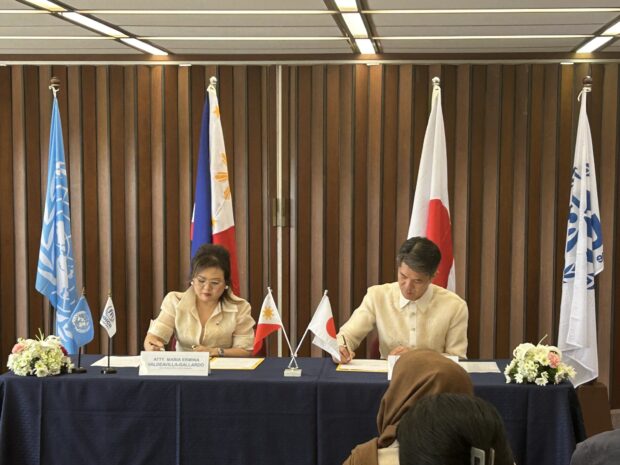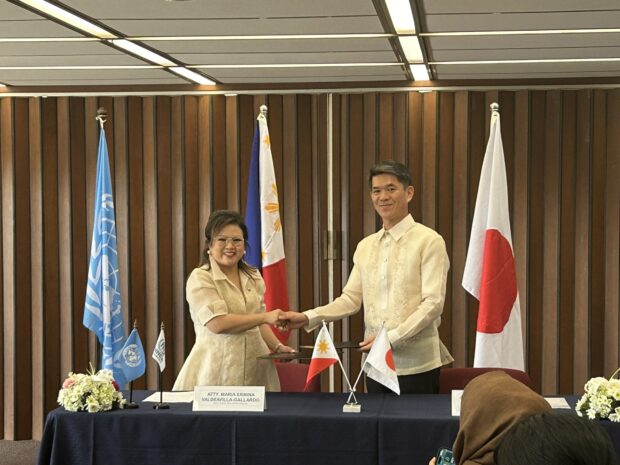In a ceremonial signing and exchange of notes on Tuesday in Pasay City, the Japanese government granted aid amounting to ¥858 million, or about P340 million, to the United Nations High Commissioner for Refugees (UNHCR).
READ: Bane of late birth registration
The funds will be utilized by the UNHCR for a 30-month initiative that will help improve access to birth registration services, particularly for the Sama Bajau people and unregistered children due to displacement caused by armed conflict in the region.
The UNHCR has provided support for BARMM’s Ministry of Social Services and Development since 2021, but the project faced challenges such as a lack of understanding of the importance of birth certificates, errors in data entries, and difficulties in accessing the target communities.
In his speech, Japanese Ambassador to the Philippines Endo Kazuya expressed hope that the funding would benefit more people in BARMM.

The event marked a ¥858 million (approximately P340 million) grant from the Japanese government aimed at registering the births of the marginalized population in the Bangsamoro Autonomous Region in Muslim Mindanao.
“We are hopeful that this initiative will strengthen linkages between local government units and these marginalized sectors and bring the latter within reach of services and other forms of assistance offered by the government and other relevant stakeholders,” Kazuya said.
Meanwhile, Maria Ermina Valdeavilla-Gallardo, head of the Philippines Office of the UNHCR, said that she is pleased to work with the Japanese government on this initiative.
READ: BARMM has ‘very low’ death registration due to Islamic tradition – PSA
“The efforts to be launched through this funding are vital to achieving SDG 16.9 on providing legal identity for all, the 2030 agenda of leaving no one behind, and the Philippines’ National Action Plan to end statelessness,” she said.
Why do you need a birth certificate?
A birth certificate, as plain and simple as it looks, can actually change the life of the person who owns it.
It gives a person his or her legal identity, which can grant access to education, healthcare, social services, and more.
The UNHCR said that while national birth registration in the Philippines was at 96.6 percent as of 2020, birth registration in BARMM was lower, at 77 percent.
All provinces in the region were also among the bottom 10 in terms of the lowest proportion of registered births.
With this funding, the UNHCR said that it aims to expand birth registration to 50 municipalities in BARMM three years from now, with a target of 30,000 beneficiaries.


